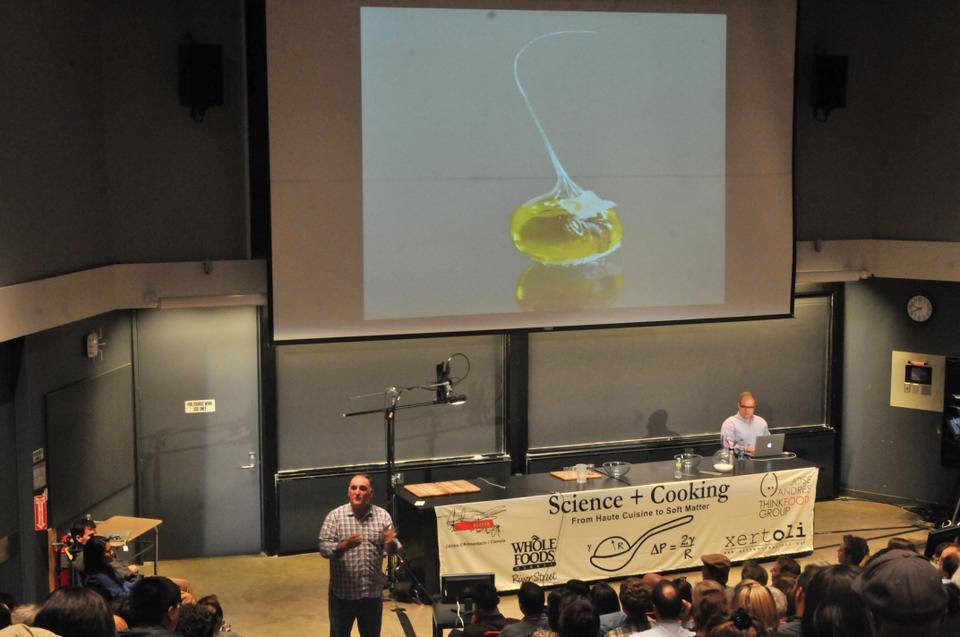
News
Pro-Palestine Encampment Represents First Major Test for Harvard President Alan Garber

News
Israeli PM Benjamin Netanyahu Condemns Antisemitism at U.S. Colleges Amid Encampment at Harvard

News
‘A Joke’: Nikole Hannah-Jones Says Harvard Should Spend More on Legacy of Slavery Initiative

News
Massachusetts ACLU Demands Harvard Reinstate PSC in Letter

News
LIVE UPDATES: Pro-Palestine Protesters Begin Encampment in Harvard Yard
Chef Gives Science and Cooking Lecture

For three years running, Science Center C has been packed with crowds clamoring to attend the popular public lecture series associated with Science of the Physical Universe 27: “Science and Cooking: From Haute Cuisine to Soft Matter Science.” Monday night was no different, when veteran guest and James Beard Award-winning chef José Andrés returned to deliver a talk which pushed the audience to think critically about food and “find the truth behind things that you learn.”
The lecture, bookended by quotations from early 19th century French food writer Jean Anthelme Brillat-Savarin, returned repeatedly to the theme of the power of food to create change and solve problems. Andrés drew on examples from the invention of canning to the social role of food in protest to emphasize developments in food technology that have reverberated throughout history.
In between video presentations of clementine sorbet and caramelized olive oil inspired by the glass sculptures of artist Dale Chihuly, Andrés fed the crowd humorous tidbits.
Displaying the use of liquid nitrogen to make almond cups with blue cheese foam, he quipped, “Come on, that’s what I do for breakfast every day.”
Applied mathematics professor Michael P. Brenner, who runs the course, said, “José is amazing. What amazes me the most is that his scientific explanations are always spot-on, and yet he does it in a way that everyone can understand.”
Andrés has long been associated with SPU 27. In its first year, he came to lecture four times.
The series, which also features lectures from White House pastry chef William Yosses and Andrés’ friend Ferran Adrià of the famous restaurant elBulli, continues each Monday until Dec. 3.
“It’s quite comprehensive. It’s great that this exists and is free,” said Kristie Thayer, a local cooking teacher.
Gary Fong, another audience member, said, “I’m a foodie. I have his cooking books, his travel DVDs. I think it’s a great forum for members of the public to understand celebrity chefs and cooking.”
Andrés stressed the importance of critically examining technology—of asking “what else can we do with this?”—in order to come up with innovative and sustainable solutions to problems like chronic food insecurity and hunger, an issue which is the focus of his organization World Central Kitchen.
“Sometimes imagination only requires not being afraid to be wrong,” he said.
Want to keep up with breaking news? Subscribe to our email newsletter.
